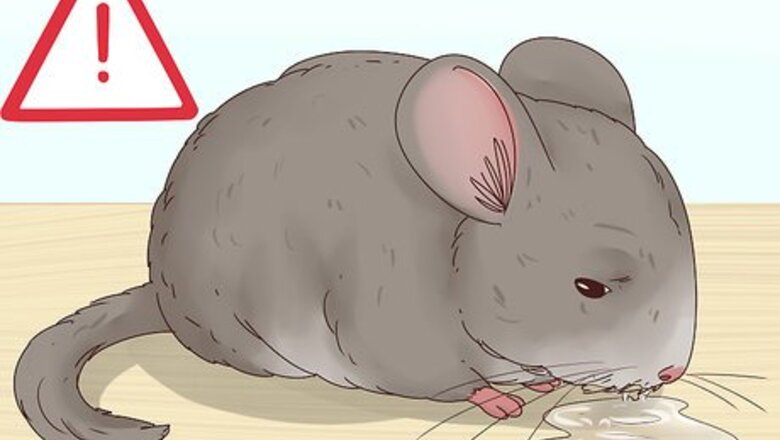
views
X
Research source
Learn to recognize the signs of choking so that you can get prompt treatment for your chinchilla. You can also take measures to prevent further choking incidents.
Recognizing the Symptoms of Choking
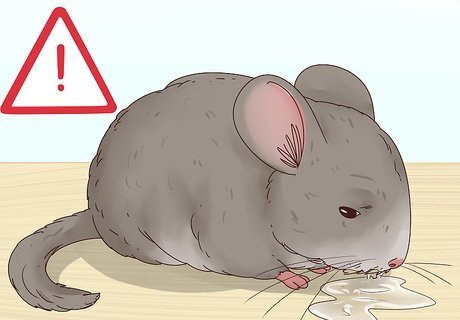
Watch for drooling. The signs of choking in a chinchilla may be subtle. If you notice your chinchilla drooling a lot, this may mean that it is choking. Drooling can also be a sign of other health problems, such as heat stroke or dental problems. If you notice your chinchilla drooling, make an appointment with your vet right away. While drooling by itself doesn't necessarily mean there's a medical emergency, it's still something you should get checked out as soon as possible. Call your vet as soon as you notice your chinchilla drooling. Get your chinchilla to the vet or an emergency vet clinic immediately if you notice drooling along with other choking symptoms, like coughing, retching, and difficulty breathing.
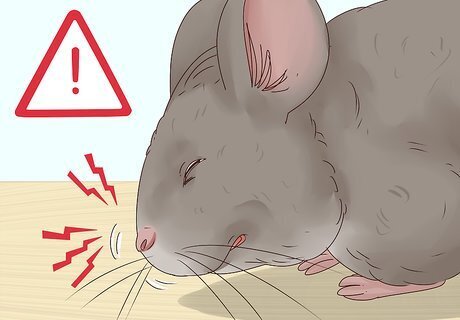
Listen for retching or coughing. A choking chinchilla may retch or cough, as if it is trying to vomit or dislodge something from its throat. If you hear your chinchilla making retching and coughing sounds, get it to the vet immediately.
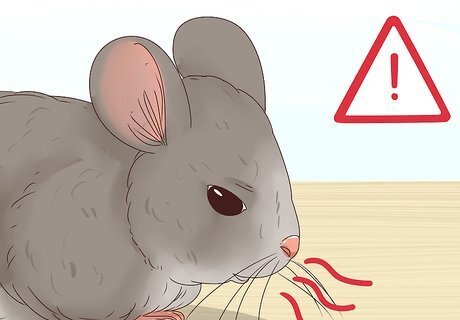
Look for difficulty breathing. Your chinchilla may pant or wheeze as it tries to breathe around the object lodged in its throat. These symptoms can also be caused by heatstroke or a variety of respiratory diseases, so difficulty breathing is always a cause for concern. Get your chinchilla to the vet right away if you notice: Wheezing Rapid breathing Open-mouthed panting
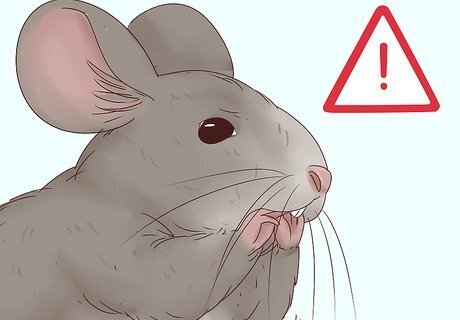
Check for pawing at the mouth. A chinchilla that is choking may grab at its mouth, trying to dislodge the object stuck in its throat. This behavior can also be a sign of dental disease or other health problems, so you should always have it checked out by a vet as soon as possible.
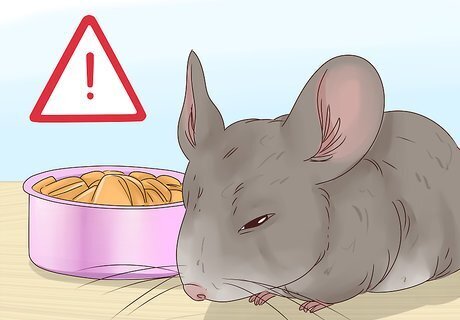
Observe your chinchilla's appetite. A chinchilla with food lodged in its throat may refuse to eat. Refusal to eat or lack of appetite can be a sign of choking. These symptoms can also be caused by a variety of other health problems. Your chinchilla can quickly develop life-threatening malnutrition, dehydration, and liver disease if the underlying cause of its lack of appetite is not treated promptly. Get your chinchilla to the vet as soon as possible if you notice that it has not eaten or had a bowel movement in the last 12 hours.
Getting Treatment for Your Chinchilla
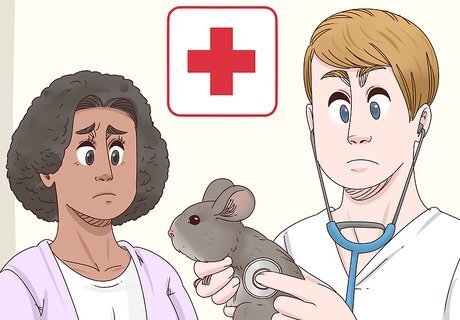
Take your chinchilla to the vet right away if you suspect choking. If you see any of the symptoms of choking, call your vet immediately. If the vet's office is closed, take your chinchilla to the nearest emergency vet. If you need to go to an emergency vet, check that they have an exotic pet vet on staff who can treat your chinchilla.
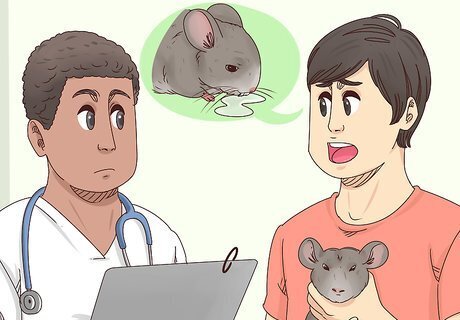
Describe your chinchilla's symptoms. Tell the vet that you think your chinchilla may be choking, and mention any symptoms you have noticed. The vet may ask you when the symptoms began, as well as general questions about your chinchilla's diet and health.
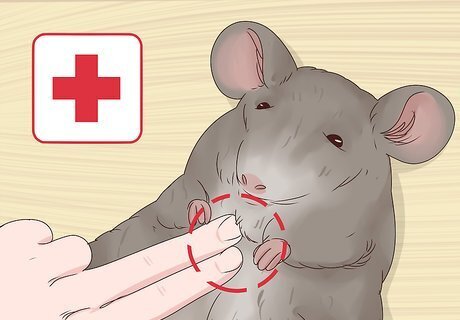
Allow the vet to do a physical exam. Your vet may start by observing your chinchilla and looking for signs of choking. They might also gently press their fingers against the chinchilla's throat to feel for the stuck object.
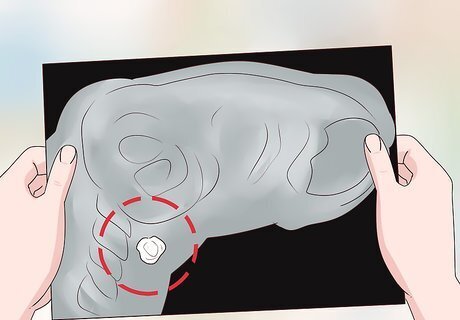
Consent to imaging tests, if needed. If the vet can't see or feel an object in your chinchilla's throat, the best way to diagnose choking is with x-rays. An x-ray will also help them pinpoint the exact location of the object your chinchilla is choking on. Your vet may also suggest other tests, such as: Blood tests, to assess your chinchilla's overall health Endoscopy, in which a small instrument is inserted into the chinchilla's throat to find (and possibly remove) the foreign object
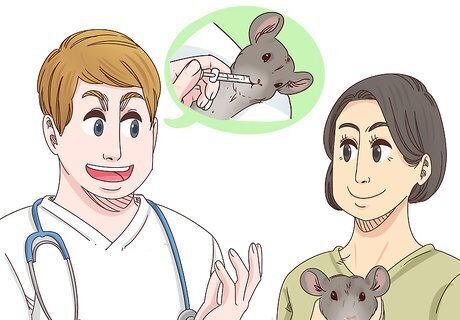
Follow your vet's recommended treatment. Depending on where the object is located, your vet may be able to remove it from your chinchilla's throat with a small pair of forceps. If that doesn't work, they may need to perform surgery. Your chinchilla may also require further supportive care, such as: Fluids and caloric support (e.g., tube feeding or syringe feeding) Rest Medications to treat any secondary infections (such as pneumonia) resulting from food getting into the respiratory tract
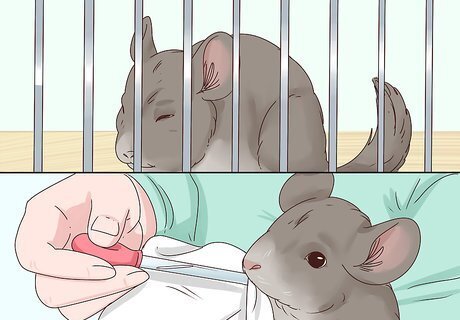
Help your chinchilla recover at home. Depending on how serious the choking incident was, your vet may recommend that your chinchilla get plenty of rest and be hand-fed for a while during its recovery. Follow all of your vet's instructions carefully. If you need to hand-feed your chinchilla, ask your vet to demonstrate the proper technique. Forcing too much food or liquid into your chinchilla's mouth too quickly can lead to more choking.
Preventing Future Choking
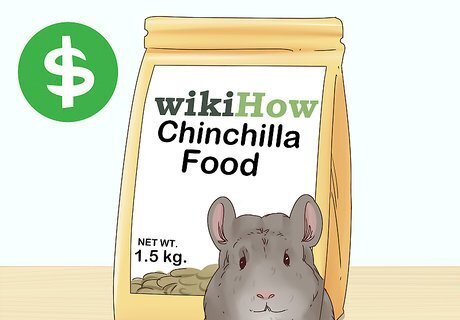
Give your chinchilla food that is easy to manage. Your chinchilla may choke if you give it food that is too big to swallow easily. Provide food pellets that are specifically made for chinchillas, and chop up any treats into small, bite-sized pieces.
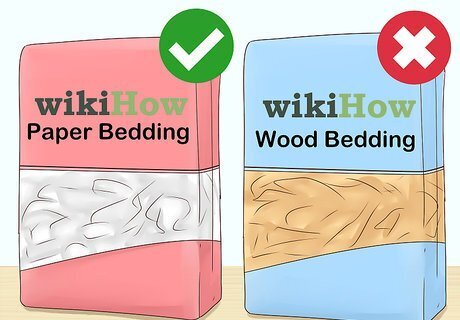
Avoid bedding materials that can cause choking. Paper-based bedding is the safest option for chinchillas, as it is non-toxic, soft, and relatively harmless if ingested. Wood-based bedding materials, such as pine and cedar chips, can not only cause choking and irritation if your chinchilla swallows them, but may also be toxic to your chinchilla.
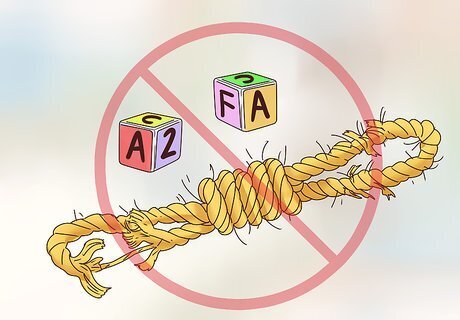
Keep small objects and damaged toys away from your chinchilla. Chinchillas love to chew—in fact, chewing on objects is vital to their dental health. Unfortunately, this habit can also lead to choking if your chinchilla manages to swallow something it shouldn't. Keep small, easily-swallowed objects out of your chinchilla's habitat, and replace toys and other accessories that are fraying or falling apart. Look for toys specifically designed for chinchillas online or in your local pet store.










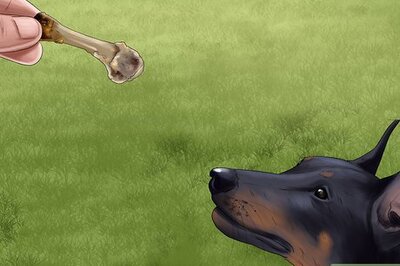

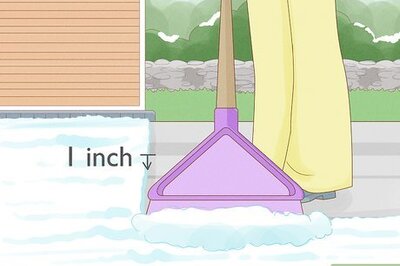






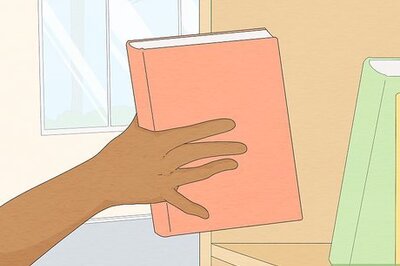
Comments
0 comment